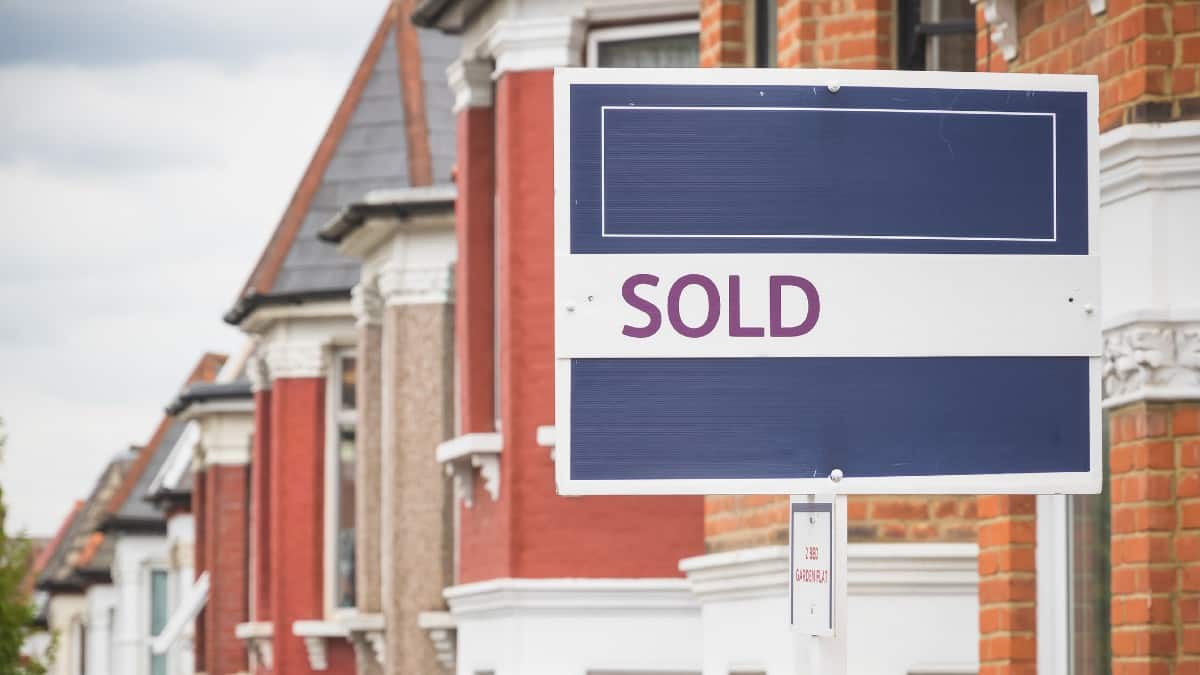A new report reveals that high house prices are significantly impacting the number of young people owning their own homes. Over the past 30 years, homeownership among those aged 25-34 has almost halved.
So, will 2022 be the year that house prices finally crash, giving young people some respite? Let’s take a look.
[top_pitch]
What did the report reveal about high house prices?
According to the Resolution Foundation, the number of people aged 25-34 owning their own homes has plummeted since 1989.
During the final year of the 1980s, a massive 51% of this age group owned their own home. This compares to just 25% reported in 2016, and 28% in 2019, when the data was last compiled. This means that homeownership among young people has almost halved in the past 30 years.
While the consumption of avocados on toast has increased since the 1980s, the report reveals the main reason why young people can’t afford to buy a home is that they don’t earn enough. The report also says many young people lack sufficient savings to put down a deposit.
According to the Office for National Statistics, the average house price is now £270,000, having grown almost £30,000 in the space of a year. This means someone buying an average home with a 10% deposit will need to have saved £27,000.
While it should be noted that some young people choose to rent by choice, the vast majority do not. According to the report, a massive 80% of 25-34 year old’s would rather buy than rent through a landlord.
The report also rubbishes the suggestion that high house prices are limited to London and the South East. It clearly states that young people are affected by high house prices in all regions of the UK.
What is the government doing to help young people afford a home?
Government supporters will point to a number of schemes available to help young people get on the property ladder. Such schemes include Help to Buy, Shared Ownership and the First Homes scheme, as well as the recently introduced 5% Mortgage Guarantee scheme.
To support the housing market during the pandemic the government also axed Stamp Duty. However, most first time buyers didn’t benefit as Stamp Duty doesn’t apply to first home purchases up to £300,000.
Despite the array of support schemes available, the fact is that house prices have continued to accelerate over the past few years. As a result of this, many feel the government isn’t doing enough to support young people to buy their first homes.
In fact, some critics suggest the government is only keen to support the demand for housing and not address supply issues. They believe government support schemes only help to increase house prices due to the fact they essentially boost the number of people able to buy property and not much else.
It is for this reason that the government’s Help to Buy scheme has been nicknamed ‘Help to Sell’ given that it has been shown to boost the prices of new build properties.
Many also blame high house prices on the Bank of England. That’s because its ultra-low base rate has widened access to cheap credit. This belief was echoed by Peter Beaumont, CEO of The Mortgage Lender, who, after the Bank’s most recent base rate decision, said this would likely push up prices.
He explained: “The Bank of England’s decision to keep the base rate at 0.1% will keep the market frenetic for at least another month.”
Whether or not the government is contributing to high house prices is debatable. However, it is a fact that homeowners are more likely to vote than renters.
[middle_pitch]
Will house prices crash in 2022?
Due to soaring house prices, young people may feel a house price crash presents their only hope of owning property.
While the housing market is notoriously difficult to predict, it is possible that house price inflation will cool in 2022. This theory is supported by the fact that mortgage approvals have plummeted over the past few weeks, indicating that lenders are tightening their criteria.
On a similar note, the Bank of England is under pressure to increase its base rate to cool inflation. If this happens, then mortgage costs will likely increase too, potentially reducing house prices.
Whatever your views on the housing market, if you’re looking for a mortgage, take a look at The Motley Fool’s top-rated mortgage deals.







